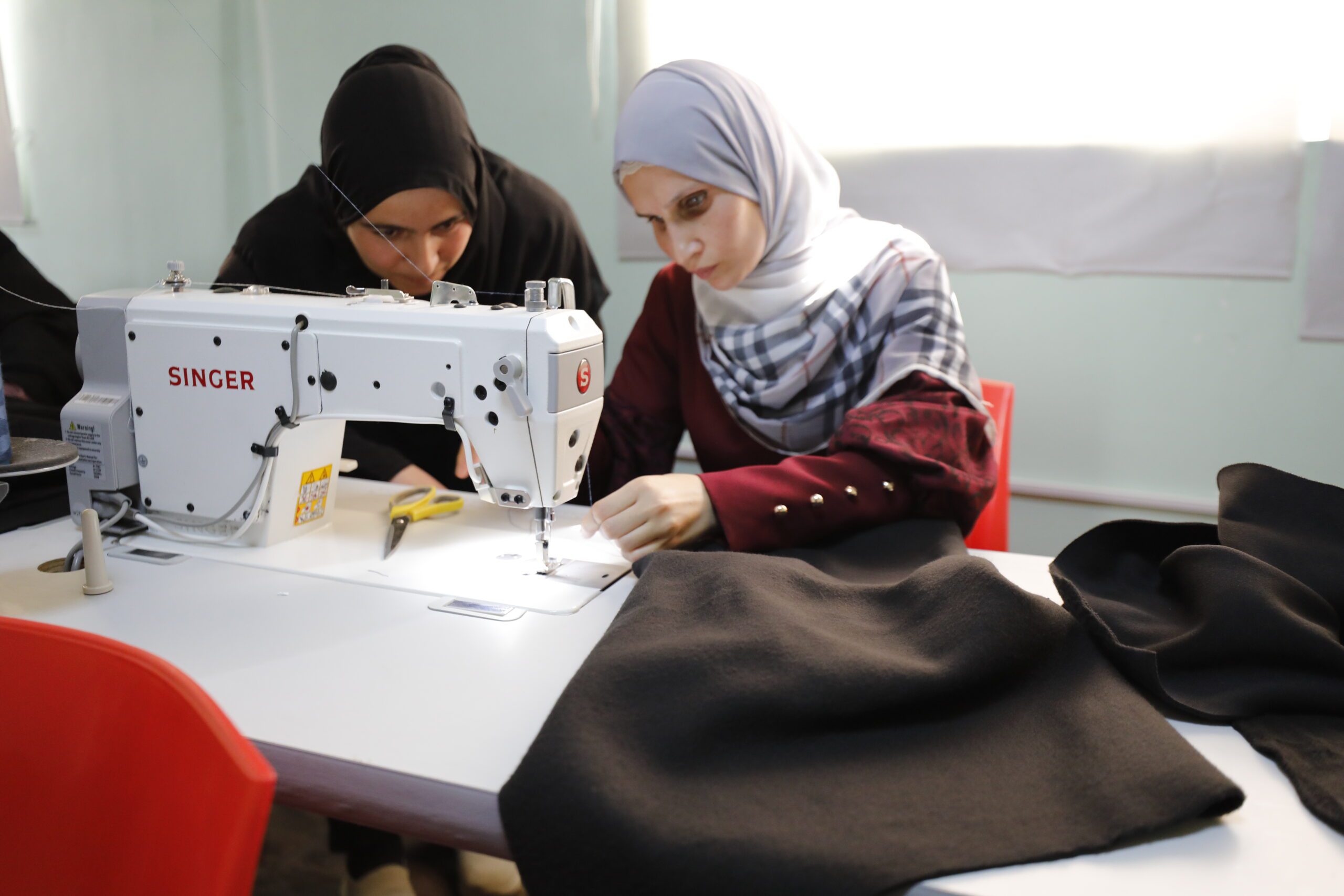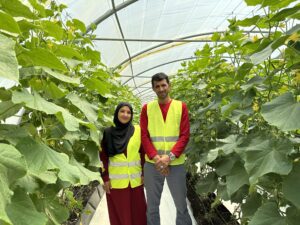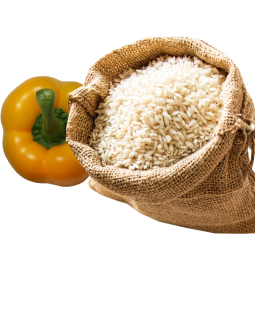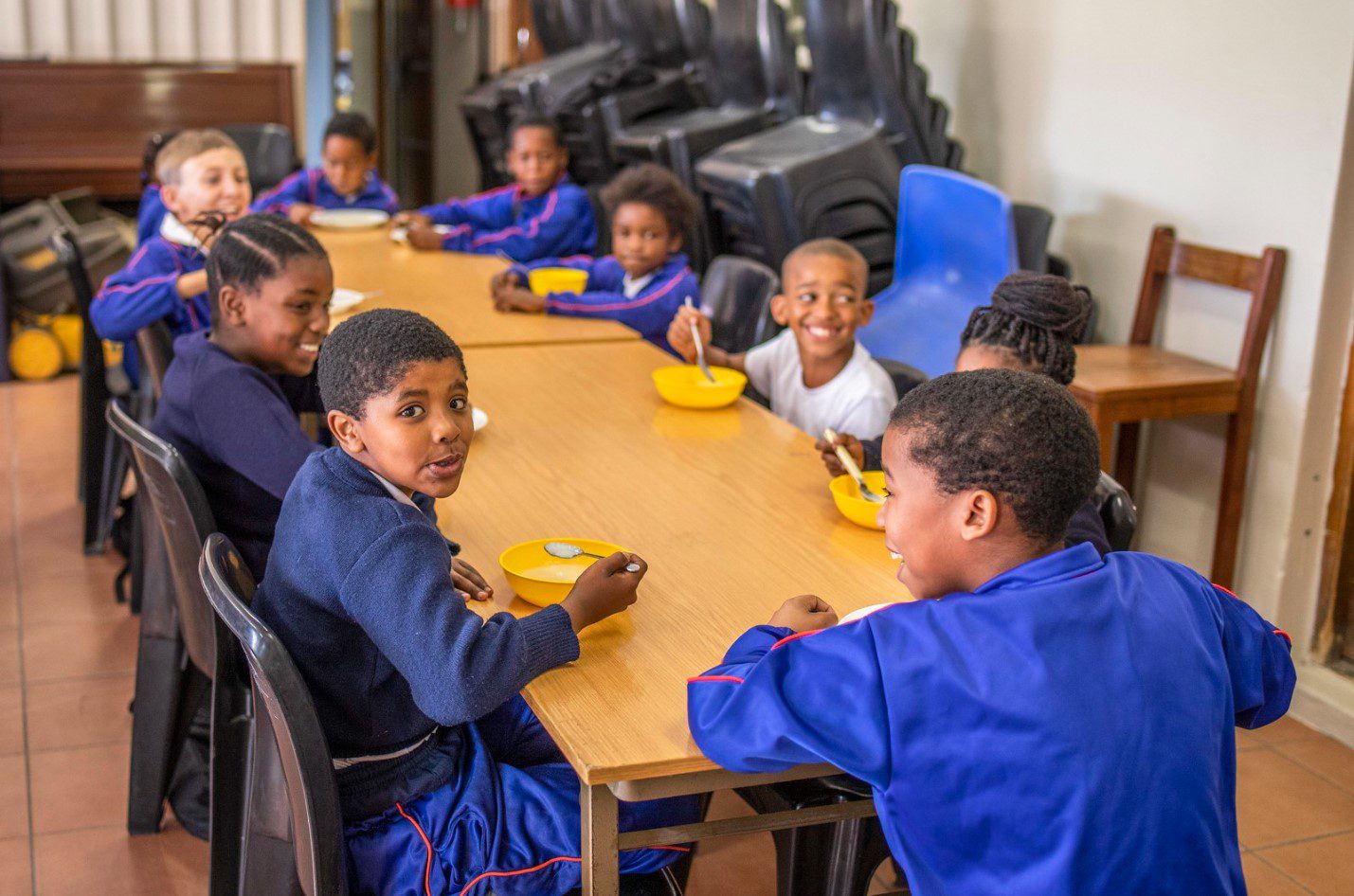Tkiyet Um Ali envisions a hunger-free Jordan. To actualize this vision, and through its strategic partnership with the nonprofit Dar Abu Abdullah, the food bank is addressing one of the root causes of hunger in the country: unemployment. Tkiyet Um Ali piloted a three-phase employment program, fostering vocational development for Jordanian families.
Since 2018, the strategic partnership with Dar Abu Abdullah has addressed unemployment, particularly for women and youth in vulnerable circumstances, by teaching technical skills and expanding access to career-focused training opportunities.
At its core, the launch of the employment program builds on the food bank’s mission. Located in the capital city of Amman, Tkiyet Um Ali was founded by Princess Haya Bint Al Hussein in 2003. The food bank was established on the principle of providing “sustainable food support and essential assistance to the families in need across the Kingdom’s governorates.” Today, Tkiyet Um Ali continues to fulfill its core mission, providing ongoing, sustainable food support through regular charitable food distribution.
Securing employment for those in vulnerable situations furthers the food bank’s mission, creating a foundation for self-sufficiency. This self-reliance enables individuals to provide for themselves and their families, creating lasting food support.
The employment program, implemented between 2020 and 2022, was designed with two job tracks: wage-based employment and self-employment. Through both tracks, program participants were set to build upon their technical skills and work toward becoming more self-reliant.
The wage-employment track connected over 2,000 participants to the labor market as it created job opportunities through employment agreements and written commitment letters from employers. To safeguard its sustainability, employment arrangements were solidified before the start of the program, ensuring a smooth transition for participants once graduating from vocational training.
The other track, self-employment, offered opportunities to establish microenterprises and home-based businesses. This track focused on three central sectors: agriculture, food processing, and handicrafts.
In the agricultural focus, participants learned eco-friendly farming techniques through a dedicated hydroponic project, growing crops, through farms established by Dar Abu Abdullah.
“I had no knowledge of hydroponic farming before this project, but now I’ve learned how to tell if a plant is healthy, if it needs spraying, or if the fruit is good,” shared Nahed Al-Zaboun, a hydroponic farming participant.
The farms produced sweet peppers, baby cucumbers, broccoli, cherry tomatoes, and red cabbage, totaling sales worth around $32,485 (23,000 JOD). More than 100 participants generated income through their hydroponic farming endeavors.
Al-Zaboun’s life changed after learning about hydroponic farming through the employment program. A mother of five, she faced challenges making ends meet before she joined the ADDAR farm in Bab Amman, Jordan. Through this employment opportunity, however, Al-Zaboun has gained the lifelong skill of farming.
In Mafraq, Jordan, 350 women gathered at Dar Abu Abdullah’s workshop to learn sewing techniques as a traditional handicraft. The women of this workshop produced an astounding total of about 1.2 million textile pieces, earning over $774,000 altogether.

To further enhance the program, Dar Abu Abdullah created a business development unit to strengthen the sustainability of the growth tracks. With these tools, Dar Abu Abdullah helps participants reach more customers, improve the quality of their products, and build businesses that can last on their own.
Beyond the project funding period, Dar Abu Abdullah maintains relationships with program participants to provide ongoing support, conducting regular follow-ups to analyze their progress. Subsequently, participants reported increased income, improved skills, and greater economic support.

Nahed Al-Zaboun and her husband at a ADDAR hydroponic farm in Bab Amman, Jordan. Photo Credit: Tkiyet Um Ali
Through Nahed Al-Zaboun’s newfound skill, she and her husband are now able to provide their family with the support they previously found difficult to provide.
“We couldn’t even give our kids pocket money for school, and now we can,” she said. “This project has improved our lives in ways we never thought possible.”
What’s Next for Jordan’s Economic Empowerment Program
With nearly 5,000 individuals trained during the program’s pilot, Tkiyet Um Ali sees continued growth potential in its partnership with Dar Abu Abdullah, as the unified approach addresses the needs of communities facing vulnerability.
Tkiyet Um Ali and Dar Abu Abdullah remain committed to sustainable change as they actively expand the employment program to add new sectors to the job tracks, aligning with Jordan’s growing market demands. Dar Abu Abdullah is particularly dedicating attention to the self-employment track as it aids more individuals in creating their own opportunities. Fostering local production and responsible procurement are among the opportunities being explored.
As the organizations bring Jordan closer to hunger relief, they are developing a five-year plan to continue the growth of the employment development program aligned with the United Nations’ Sustainable Development Goals (SDGs), including eradicating hunger (SDG 2), promoting decent work and economic growth (SDG 8), and reducing inequalities (SDG 10).


